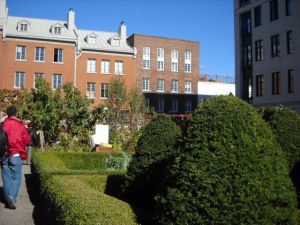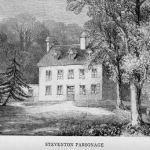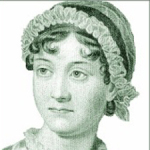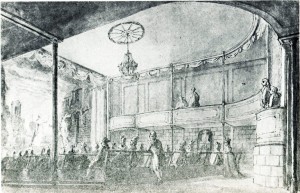
Private Theatre at Brandenburg House, Fulham
Private theatricals were all the rage during the late 18th century/ early 19th century. I have always had a hankering to write a story that takes place during a theatrical production at a house party. As Jane Austen recognized in Mansfield Park, this can lead to all sorts of interesting interactions.
From about 1770 genteel British society was affected by the urge to perform plays in private theatres.
And they had to be “private” and amateur; unlicensed public performances were illegal .The Licensing Act of 1737 stipulated a fine of £50 for anyone convicted of acting for “hire, gain or reward” in any play or theatrical performance not previously allowed by royal patent or Licensed by the Lord Chamberlain.
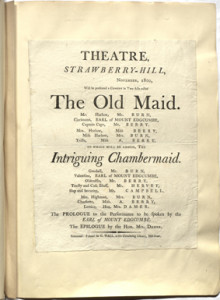
Program for private theatrical at Horace Walpole’s Strawberry Hill
Marc Baer in his excellent book, Theatre and Disorder in Late Georgian London, theorizes that private may have been preferable to many of the upper classes who wished to avoid the riots which were so prevalent a part of theatre going, in the 18th century.
Also that it was a step by the upper classes to distance themselves from the increasingly plebeian nature of performances at the two Patent theatres in London. They were once concerned only with productions of “serious” plays and opera, but were increasingly incorporating elements of pantomine, and melodrama, burletta and pure spectacle into the evening’s entertainment. In short the evenings were becoming vulgar.
“It was beyond everything vulgar I ever saw…the people were hollowing and talking to each other from the pit to the gallery, and fighting and throwing oranges at each other. The play itself was a representation of all the low scenes in London… a sort of very low Beggar’s Opera, but it is impossible to describe the sort of enthusiasm with which it was received by the people who seems to enjoy a representation of scenes, in which, from their appearance, one might infer they frequently shared.”
(extract from a letter written by Mrs Harriet Arbuthnot, writing about seeing a performance of Life in London by Pierce Egan and George Cruickshank at the Adelphi Theatre in 1822.)
Some of the more prosperous amateur performers constructed very elaborate private theatres- some were decidedly amateur.
Paula Byrne writes in her book Jane Austen and the Theatre remarks;
Makeshift theatre mushroomed all over England from drawing room to domestic buildings. At the more extreme end of the theatrical craze member of the gentrified classes and the aristocracy built their own scaled down imitations of London playhouses. The most famous was that erected in the late 1770s by the spendthrift Earl of Barrymore, at a reputed cost of £60,000.
Barrymore’s elaborate private theatre was modelled on Vanburghs Kings Theatre in the Haymarket. It supposedly seated seven hundred
We know from records of the very elaborate and private theatricals at Richmond House- home to the Duke of Richmond (and his daughters, the Lennox sister, subjects of Stella Tillyard’s book Aristocrats) that these private theatricals could be very professional indeed.
This craze for theatricals was reflected in the literature of the time. Jane Austen was not the only author who used the craze in her work. Amanda Vickery in her book The Gentleman’s Daughter remarks;
The donning of disguise and the doffing of decorum might be thrilling for participants but it could be disquieting to attentive observers, as novels such as Jane Austen’s Mansfield Park (1814) Maria Edgeworth’s Patronage (1814) and Fanny Burney’s The Wanderer (1814) dramatically demonstrated.
In a note to this part of her text she adds;
The narrative possibilities inherent in amateur performance were seized on by novelists, but assessments of the morality of female exhibition differed. Fanny Price piously refuses to take part in Lovers Vows, which redounds to her credit…The pure and perfect Caroline Percy declines an invitation to take part in Zara, which in the event demonstrates the vanity of her rival, yet Caroline remains a sympathetic member of the audience…On the other hand, the “incognita” is allowed to give a dignified performance as Lady Townley in The Provoked Husband, which convinces many in the audience of her gentility:
Opinions as to the desirability and correctness of “polite” females appearing on the stage certainly varied as evidenced from these novels. A position certainly reflected by Jane Austen in Mansfield Park.
Certainly, members of the growing Evangelical Movement in the Church of England voiced grave concerns about such performances.
In his work An Enquiry into the Duties of the Female Sex (1797), Reverend Thomas Gisbourne took a stance very much against this type of theatrical performance. Actresses were still not quite “respectable” at this time in history, despite the success of actresses such as Mrs Siddons, who was a favourite with King George III and Queen Charlotte.
For some years past the custom of acting in plays in private theatres, fitted up by individuals of fortune, had occasionally prevailed. It is a custom liable to objection among others: that it is almost certain to prove, in its effects, injurious to the female performers. Let it be admitted that theatres of this description no longer present the flagrant impropriety of ladies bearing apart in the drama in conjunction with professional players. Let it be admitted, that the drama reflected will in its language and conduct always be reprehensible. Let it even be admitted, that many theatrical talents will not hereafter gain admission upon such a Stage for men of ambiguous or worse than ambiguous character. Take the benefit of all these favourable circumstances; yet what is even then the tendency of such an amusement? To encourage vanity; to excite a thirst of applause and admiration of attainments which, if the are to be thus exhibited, it would commonly have been far better for the individual not to possess; to destroy diffidence, by the unrestrained familiarity with the persons of the other sex, which inevitably results from being joined with them in the drama; to create a general fondness for the perusal of plays, of which so many are unfit to be read; and for attending dramatic representations, of which so many are unfit to be witnessed.
Jane Austen read this work, on Cassandra’s recommendation, in 1805. She had expected to dislike it, but surprised herself by approving of it.
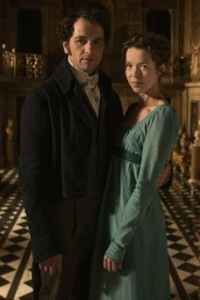 Who else is planning to watch Death Comes to Pemberley next Sunday? I thought the book was not one of PD James’s best, but quite often not so good books make good tv, so I’m cautiously optimistic. Here’s the preview. What do you think of Matthew Rhys/Anna Maxwell Martin as the dynamic duo?
Who else is planning to watch Death Comes to Pemberley next Sunday? I thought the book was not one of PD James’s best, but quite often not so good books make good tv, so I’m cautiously optimistic. Here’s the preview. What do you think of Matthew Rhys/Anna Maxwell Martin as the dynamic duo?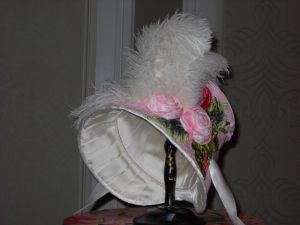 The view from my hotel room, early in the morning:
The view from my hotel room, early in the morning: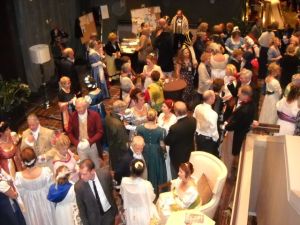 Old Montreal on a lovely sunny day:
Old Montreal on a lovely sunny day:

